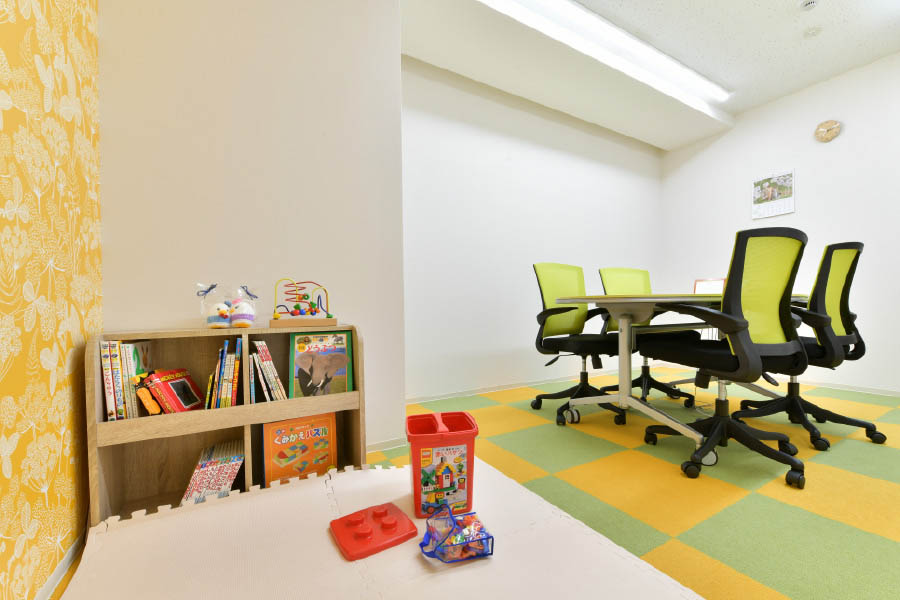Consultation for International Divorce

We, experienced lawyers, handle legal cases for International residents, including:
- Divorcing a Japanese spouse or non-Japanese spouse
- Hague Convention case
- Child custody, child support or parental visitation
Need Help With A Legal Problem?
We, Nagoya International Law Office, welcome cases for international divorce.
- I am a Korean woman married to a German male. We have been living in Japan for 30 years. Now my husband has gone back to Germany, leaving me in Japan and he is not returning. Can I get divorced in Japanese court?
- I am a Filipino woman married to a Japanese male. I want to divorce because my husband cheated on me. Can I get divorce even though there is no divorce system in the Philippines?
- My husband and I have been living separately for many years. My husband is in the UK and I live in Japan. I received a letter regarding divorce from the UK court last week. What should I do?
- I am a Brazilian living in Japan and my wife is also Brazilian. My wife left me, taking our children with her and has moved to another prefecture in Japan. Can I have my children returned?
- I got married to a US male and was living in the US. We have a child. My husband had been abusing me physically, so I ran away from the US to Japan. I never want to go back to the US. What should I do?
- I am a Canadian male living in Canada. I got married to a Japanese woman. We agreed to joint custody and divorced in Canada, and then my ex-wife went back to Japan. Although I have never failed paying child support, my ex-wife does not let me see my child. What can I do?
Kids space is available.
Nagoya International Law Office has a kids space in a consultation room.
You can bring your children to our legal consultation.

Online Legal Consultation is Available
In addition to in-person legal consultations at our office, we do provide legal consultations via video chat on the following services: Zoom or LINE. Contact us if you need to use a different video service. All video based legal consultations require payment in advance.
Procedure of Tasks
To Divorce a Spouse who is not in Japan
Question: Can I divorce my husband who has left Japan?
Resolutions
Even if your spouse is not in Japan, you may divorce in the Japanese courts for certain cases.
Information
To address the case across the border, the court must have an “International Jurisdiction”. International jurisdiction refers to the power of a court to hear and determine the international case. The judge in the Japanese court determines if that court has the International Jurisdiction over the case following the Personal Status Litigation Act. Japanese courts have International Jurisdiction , for example, when the defendant resides in Japan , the couple’s final place of cohabitation was in Japan, the defendant is missing, and so forth. In your case, the Japanese court may determine to have International Jurisdiction , if you and your husband lived together before he left Japan.
Our Service
We, the Nagoya International Law Office, will search for the defendant’s residential address as the first step. If we are able to contact the defendant, we will confirm if he/she has an intention to divorce. If he/she does not have the intention to divorce, we file a petition for divorce to the Japanese family court along with the translation in the language of where the defendant is. The Japanese court serves the petition to the defendant, and it is expected the petition is received in about 2 months to 1 year depending on the postal service circumstance in countries. Once the petition is received by the defendant, the lawsuit starts, and the court hearing will commence.
For help with international divorce, contact Nagoya International Law Office.

Frequent Q&A
Q. |
Do I necessarily have to divorce in the court even when my spouse agrees to divorce in Japan? |
|---|---|
A. |
In Japan, it is also possible to get divorced based on a mutual agreement which is called ‘Kyougi Rikon’ in Japanese, but ‘Kyougi Rikon’ is not always accepted as a valid divorce outside Japan. We recommend you confirm if ‘Kyougi Rikon’ is the appropriate option beforehand. |
Q. |
Can I file a petition for divorce in a Japanese court even when the divorce suit has been already commenced in another country? |
|---|---|
A. |
Yes, you can. Commencement of suit in another country does not prevent you from filing a petition in Japan. However, if the judgment is already rendered in the other country, sometimes you cannot file a petition for divorce again in Japan. Please contact us for more advice. |
Q. |
Can I file a petition for divorce in Japan even though my spouse is missing somewhere outside Japan? |
|---|---|
A. |
Yes, you can file a petition in Japan when your spouse is not living in Japan and their whereabouts are unknown according to the Personal Status Litigation Act. Please contact us for more advice. |
Q. |
Can I file a petition for divorce while I am living outside Japan? |
|---|---|
A. |
Yes, but you need to retain Japanese lawyers to file a petition for divorce in Japan. |
Divorce with a Japanese Spouse in Japan
Resolution
You may divorce in Japan but there are some points to note.
Information
You will divorce a Japanese spouse living in Japan according to the Japanese law.
In Japan, there are three types of divorce:
- Kyogi-Rikon (divorce by mutual agreement)
- Choutei-Rikon (divorce by mediation)
- Saiban-Rikon (divorce determined by a Judge)
Kyogi-Rikon is based on mutual agreement so if you do not have any conflicts between you and your spouse this is fastest and simplest way to divorce. However, many countries do not accept it as a valid divorce.
Choutei-Rikon is normally held in a mediation facility in the family courts as private mediation services are not common in Japan. Choutei-Rikon and Saiban-Rikon are court-related divorces, and may be valid outside of Japan depending on the country.
Our Service
We, Nagoya International Law Office, will research which type of divorce in Japan (or if the divorce in Japan) can be accepted in your country using our own world-wide network. If your county allows you to divorce by agreement, it does not mean Kyogi-Rikon in Japan is always accepted as valid in your country. When you must divorce via a court-related way, we can represent you in the court.

Frequent Q&A
Q. |
I'm a US male and am getting divorced from my Japanese wife. Can we divorce by Kyogi-Rikon? |
|---|---|
A. |
Kyogi-Rikon is valid in Japan, however, it is not generally accepted as valid in the US. We recommend you divorce in a court-related way. Court-related procedure usually takes time, but we are able to advise the best path for you. |
Q. |
I am a Filipino woman. We don’t have a divorce system in the Philippines, but I have heard Filipino women may divorce from their Japanese husbands. |
|---|---|
A. |
Divorce is usually not allowed in the Philippines, but divorce from a foreign spouse is accepted. However, in order to make a divorce in Japan effective in the Philippines, the procedure of ‘Judicial Recognition of Foreign Divorce’ is required in the Philippine court. This procedure is approximately one year. |
Q. |
In my country, the parents have joint custody even after they divorce. Can my Japanese spouse and I receive joint custody when we divorce in Japan? |
|---|---|
A. |
If you divorce in your country, it is assumed your spouse and you receive joint custody. However, joint custody is not allowed in Japan, so you must decide which parent receives solo custody. Please note you may arrange for visitation in order for mutual care of your children. This type of arrangement should be very clear when organizing. |
Hague Convention Case (the Convention on the Civil Aspects of International Child Abduction)
My wife took our children to Japan without my consent.
Solution
You can apply for assistance to the Central Authority in your country if your country is a member of Hague Convention. You can apply for mediation or file a petition for the Return of Child under the Hague Convention Implementation Act in a court in Japan.
Though there are not many lawyers who are specialized in regard to child abduction in Japan, we have extensive experience of Hague Convention cases and will advise you as to the best course of action.
Information
As Japan is a member of the Hague Convention on the Civil Aspects of International Child Abduction, you can file a petition for the Return of Child under the Hague Convention Implementation Act in Tokyo Family Court or Osaka Family Court within Japan. The court will order the respondent to return the child(ren) to the country of habitual residence as long as it does not find any of the grounds for Refusal of Return of Child exists.
These are a part of the grounds for Refusal of Return:
- The abduction occurred more than 1 year before.
- The applicant had consented to the removal or retention.
- Child(ren) object(s) to return the original country
- If there is concern for serious harm if the child(ren) is back in the country of habitual residence
Our Service
We, Nagoya International Law Office, are able to represent you whether you reside in Japan or not. We are able to consult via video chat in English. If you cannot speak in Japanese or English, we can arrange interpreters during the meeting for your convenience. We will arrange a meeting as soon as possible and find the most effective solution.

Frequent Q&A
Q. |
My wife left me and went back to Japan with our son. She insists our son objects to being returned and he wants to stay in Japan, but he is only 5 years old. Will this effect how the courts perceive the case in Japan? |
|---|---|
A. |
Japanese courts don’t publish the judgment of Hague Convention cases, however, the courts usually take account of a child’s perspective if they are over 12 years old. If the child simply wants to stay with the parent who lives in Japan, it will not be considered. |
Q. |
What can I do if my child has been taken away from Japan to a foreign country? |
|---|---|
A. |
You can file an application to the Central Authority of Japan for assistance in order to request the return of the child to Japan, and you can also file an application to the Central Authority in the country if a member of the Hague Convention. You will need to file a petition for the Return of Child in the country which the child is taken to. We can support your communication with a lawyer internationally. |
Q. |
What will happen after the order for the Return of Child is made by the court? |
|---|---|
A. |
If you don’t voluntarily perform your obligation according to the order, the opposing party will usually request compulsory execution. In the first step, the court will impose monetary sanctions on you until you perform your obligation. This is called an ‘indirect compulsory execution’. In the second step, a court execution officer will visit your home and ask you to transfer the child to the officer. This is called a ‘direct compulsory execution’. If this procedure fails, there is another procedure which is called ‘Habeas Corpus’. |
Parental Visitation
Resolution
You may apply for mediation to the Japanese Family Courts. In mediation, you will explain the details of parental visitation. In case an agreement cannot be reached in the mediation, the case moves to adjudication proceedings and the Judge makes a decision. You can also apply for mediation at the Dispute Resolution Center in the Aichi Bar Association. If it is a Hague Convention case, you are able to receive support from the Japanese Central Authority, Ministry of Foreign Affairs (MOFA).
Information
Parental visitation requires one parent who is not living with the children to have parenting time with their children on a regular basis. This is deemed as a child’s right. You may talk about and decide how parental visitation will be carried out. If you are not able to reach an agreement, you may use meditation in the Family Courts within Japan. There are 2 mediators during proceedings. During mediation, the parents of the children may discuss matters with mediators separately, as to ensure face-to-face contact with the opposing parent is not necessary.
The typical agreement in Japan is once-per-month visitation (also viewed as ‘Japanese standard’.
Our Service
We, Nagoya International Law Office, are able to support a parent who would like to make an agreement on visitation or perform visitation. We are able to apply for mediation in the Family court on your behalf. We strive to receive results beyond the Japanese standard. Mediation sessions are held only in Japanese, but we will advise you and support you during the mediation sessions in English if you have difficulty communicating in Japanese. If you are not living in Japan, we know mediation services which allow multiple attendees in a mediation session via video call. Please contact us for more information.

Frequent Q&A
Q. |
My ex-wife insists our son refuses to meet me, but I don’t believe he does. Can I investigate as to hear his true opinion? |
|---|---|
A. |
The family court usually issues a Family Court investigating officer to research the child/ren’s perspective. Family Court investigating officers are specialists who have knowledge and methods of psychology, sociology, social welfare, pedagogy, and law. |
Q. |
What happens if my ex-wife will not let me see the children even though we have reached agreement in mediation? |
|---|---|
A. |
If you agreed to transfer the child in a specific way and perform visitation on a specific date and time, you may apply for indirect compulsory execution, and the court can impose monetary sanctions on her until she performs her obligation. When you make an agreement of visitation, ensure the details are specific. |
Q. |
Do you know any services which support me in performing visitation? |
|---|---|
A. |
FPIC (Family Problems Information Center (Katei Mondai Jouhou Senta)) and FVS (Nihon Family Visitation Support Center) will help you, however, there is a fee. More information is listed on their website (Japanese only). |
Q. |
I haven’t paid child support for months. Will the agreement of visitation be cancelled? |
|---|---|
A. |
Paying child support and performing visitation are separate matters. If you could not pay child support due to reasons such as poverty, the agreement of visitation should not be cancelled. However, failure to pay child support has consequences. |




